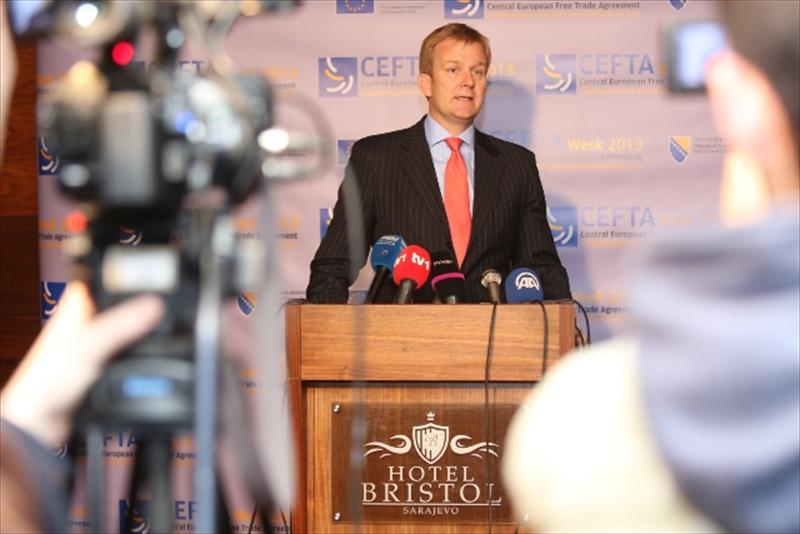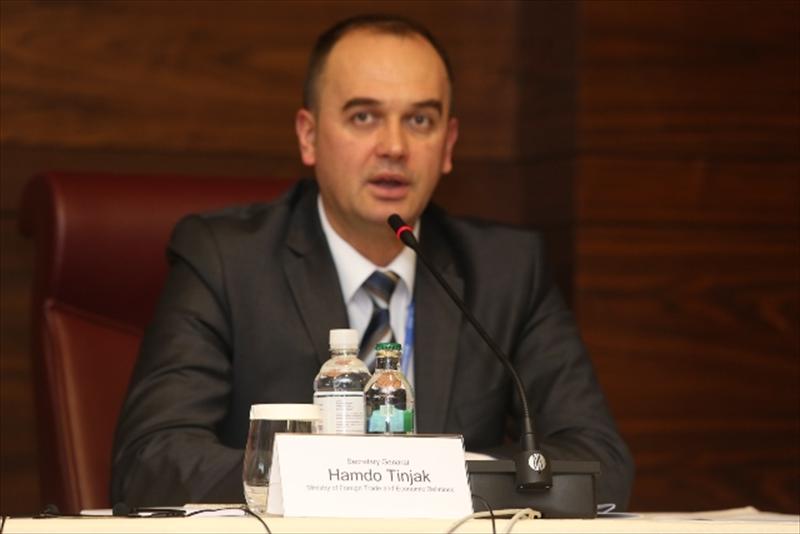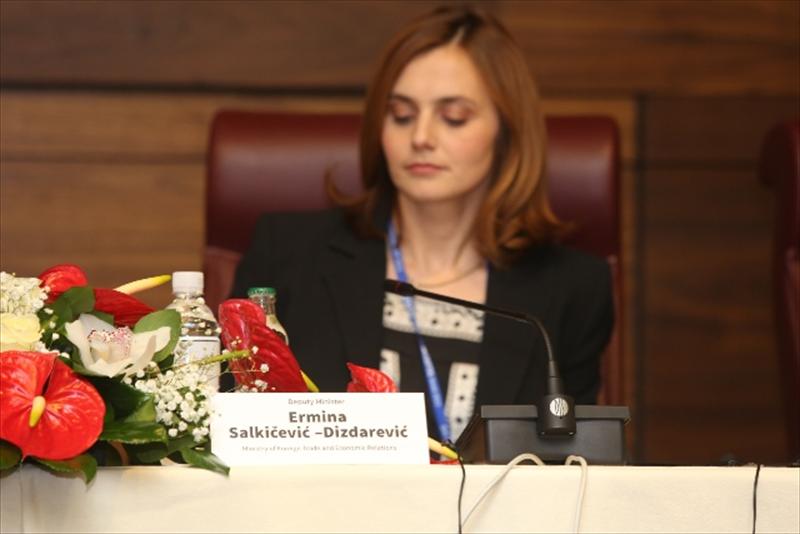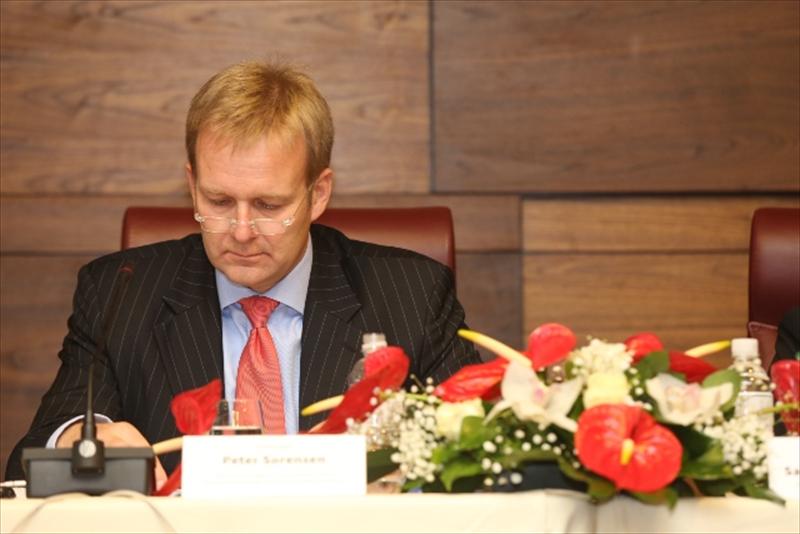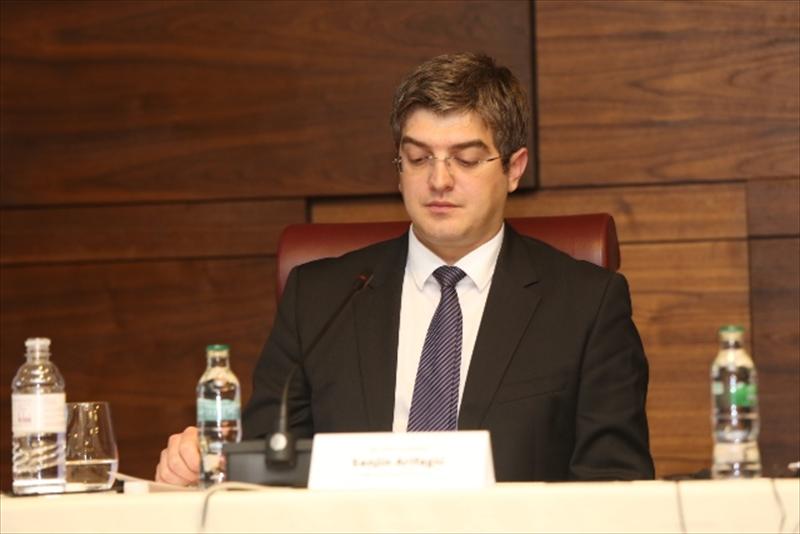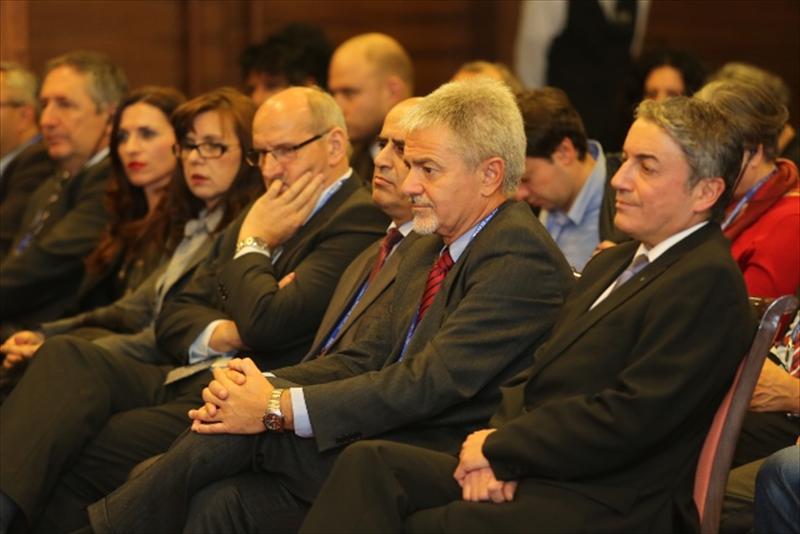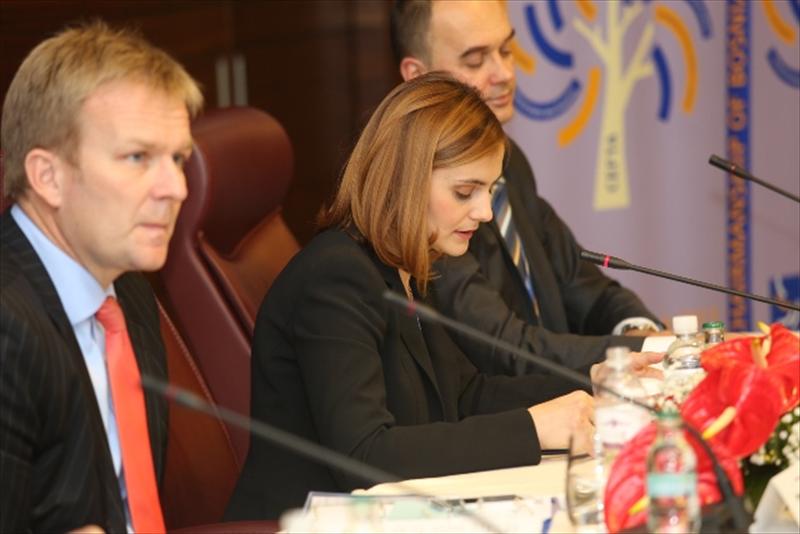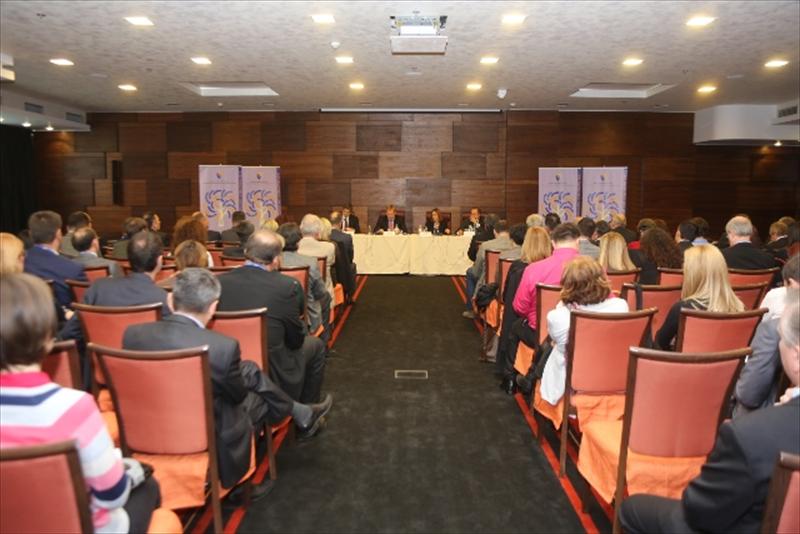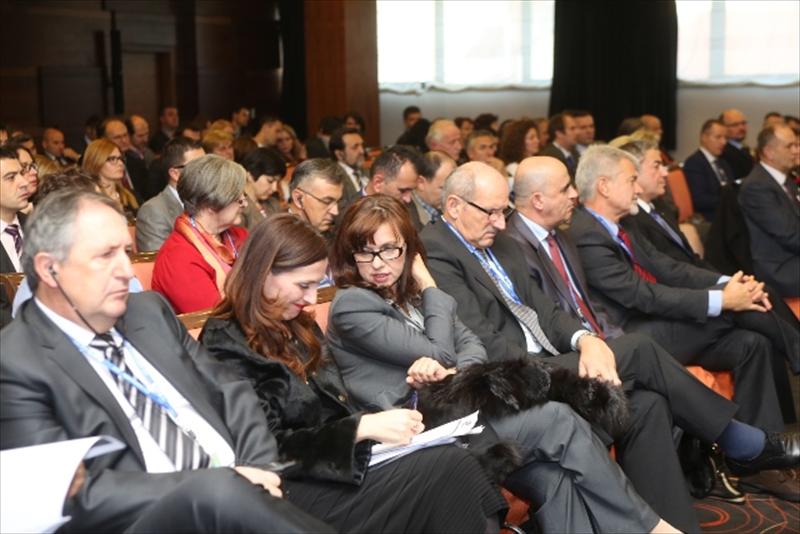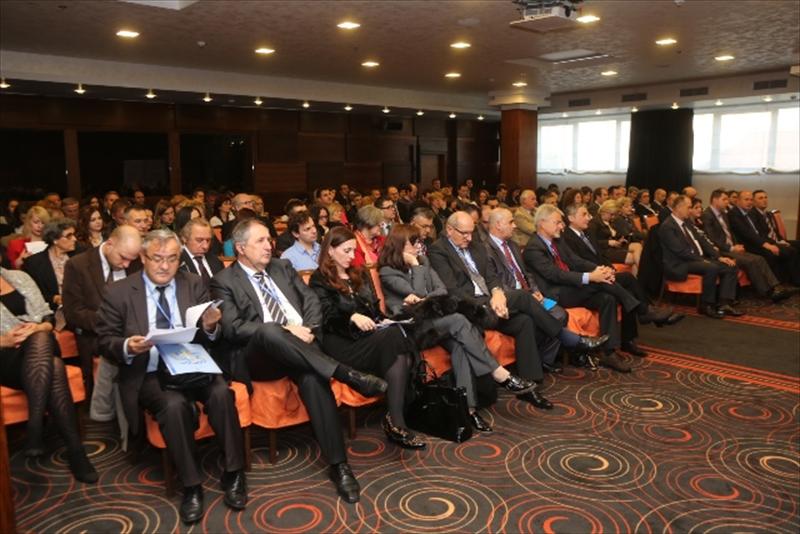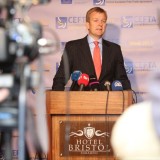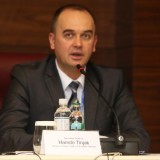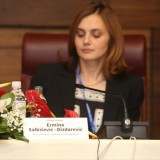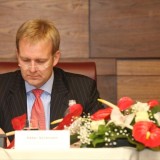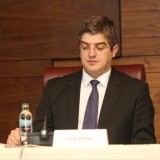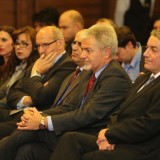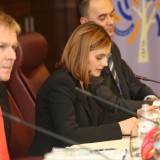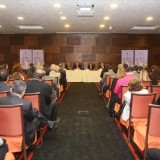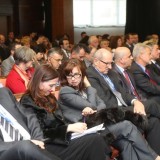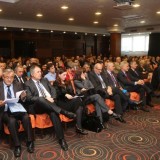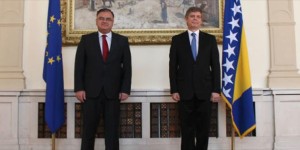The beginning of this week is marked by CEFTA Week. Bosnia and Herzegovina is the Chair-in-Office of CEFTA in 2013. The Ministry of Foreign Trade and Economic Relations of BiH, the line ministry and host, in cooperation with Support to Trade Policy and Capacity Building in Bosnia and Herzegovina Project, financed by the European Union, organizes on November 18 and 19, 2013 a range of activities from the CEFTA Chairmanship Program of Bosnia and Herzegovina. One of the activities is an event called CEFTA Week that starts today on November 18, 2013 in Sarajevo. It was launched by a plenary session during which introductory remarks have been delivered by Mrs. Ermina Salkičević–Dizdarević, Deputy Minister of Foreign Trade and Economic Relations of BiH, Ambassador Peter Sorensen, the Head of the Delegation of the European Union to Bosnia and Herzegovina and EU Special Representative, and Mr. Sanjin Arifagić, RCC Coordinator of the SEE 2020 Strategy.
“Our efforts within the CEFTA Agreement have improved the positions of products coming from Bosnia and Herzegovina. The priorities in the upcoming period must be the initiatives of CEFTA in relation to transparency procedures and the signing of multilateral regional agreements. During the CEFTA Chairmanship of Bosnia and Herzegovina we have concentrated on transparency provisions that have been very important for the trade of Bosnia and Herzegovina in the region. We have achieved certain progress and hope to see more progress in the next period!” – Deputy Minister Ermina Salkičević-Dizdarević underlined in her introductory remarks.
Ambassador Peter Sorensen said: “The CEFTA Agreement is an important tool for economic growth and very effective learning platform, which brings the best from the regional practice. All parties to CEFTA are open and small economies. A free trade between them offers ways to raise their competitiveness and introduce necessary reforms, which will allow them to exploit full potential of Stabilisation and Association process with the EU. This will also help prepare the companies of CEFTA countries to compete within the EU’s Single Market, when the time comes.
The European Union has supported CEFTA and its development since its beginning in 2000 and will continue to do so. Besides technical assistance, the EU supported the economies of the region through the Autonomous Trade measures that gave to the countries free access to the EU markets even before the signature of the Stabilisation and Association Agreement or DCFTA Agreements with CEFTA Parties.”
Mr. Sanjin Arifagić stressed the following in his remarks: “Bosnia and Herzegovina can truly be satisfied with the results of its CEFTA Chairmanship, despite the poor economic trends in the region. Additional progress was achieved in intensifying and promoting trade, as well as removing administrative and other barriers. It is also important to note that Bosnia and Herzegovina, by its CEFTA Chairmanship and Co-Chairmanship of the South East Europe Investment Committee, played a key role in the preparation of the South East Europe 2020 Strategy that shall set development and cooperation directions between the countries of the region for the remainder of this decade. Regional Cooperation Council welcomes the constructive role of BiH and Ministry of Foreign Trade and Economic Relations in this process and hopes to see excellent cooperation also in the implementation of this Strategy.”
The plenary session was followed by the first parallel session entitled Intra-Regional Trade – Key Component of the SEE 2020 that served as platform for discussions about the importance of having a vision about the new paths of regional development for South East Europe with the aim of ensuring prosperity and new jobs in the region, as well as stimulating the main long-term drivers of economic growth. Speaker at this session were Mr. Hamdo Tinjak, MoFTER BiH Secretary, and Deputy Minister Ermina Salkičević-Dizdarević.
The topic of the second parallel session was The Role of CEFTA Forum of the Chambers of Commerce – Agriculture and SPS and Trade in Services – and the of the third parallel session Making Trade Easier – Removing Barriers to Trade.
During the two days 9 sessions will take place with participation of representatives of CEFTA structures, international organizations, academic community and chambers of commerce of the region who will discuss the implementation of the CEFTA Agreement, as well as proposals of ideas and approaches to be presented at the CEFTA Joint Committee meeting on November 20, 2013. The media shall be duly informed thereon.
To read the full speach of Ambassador Sorensen, click here

